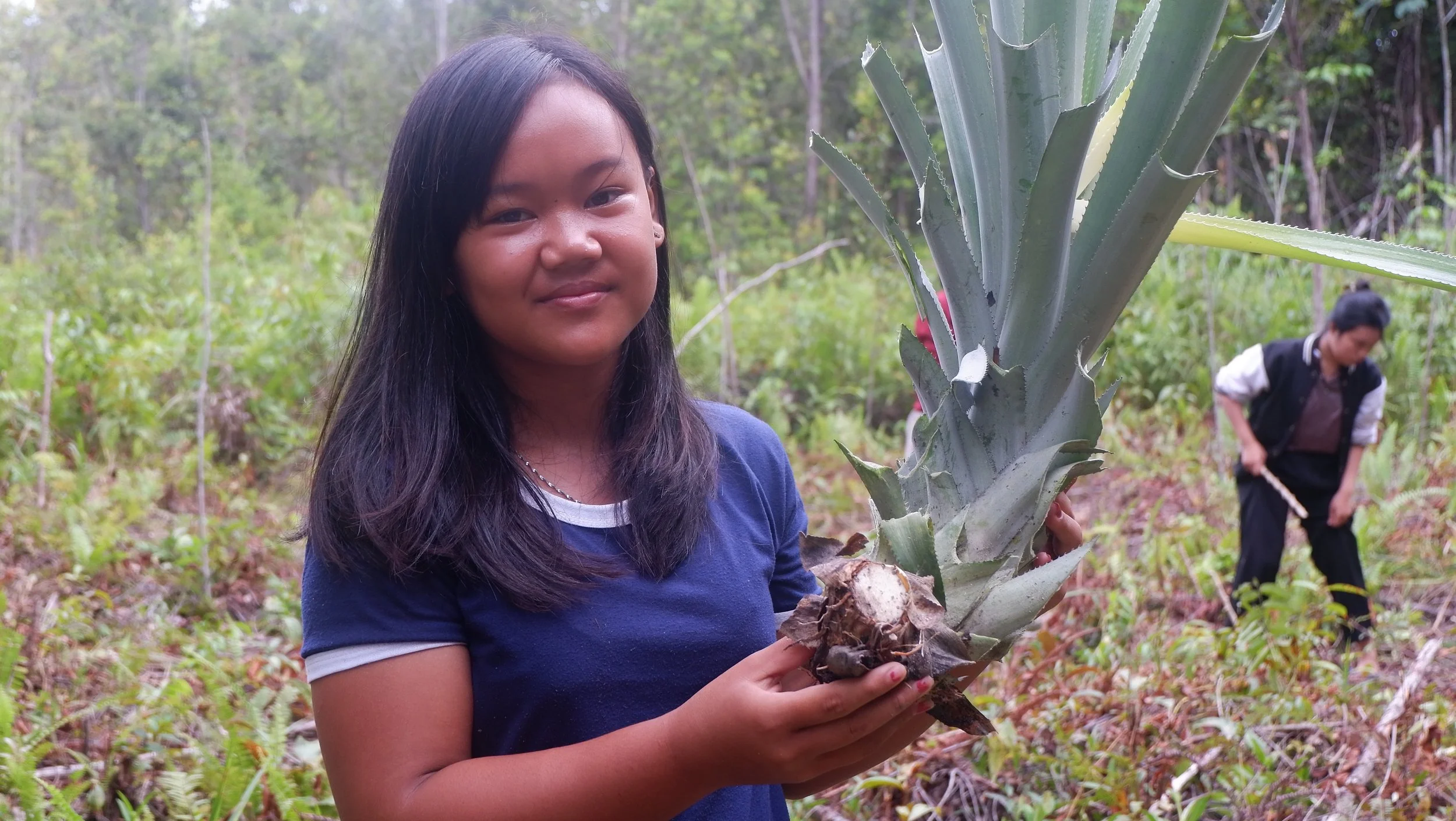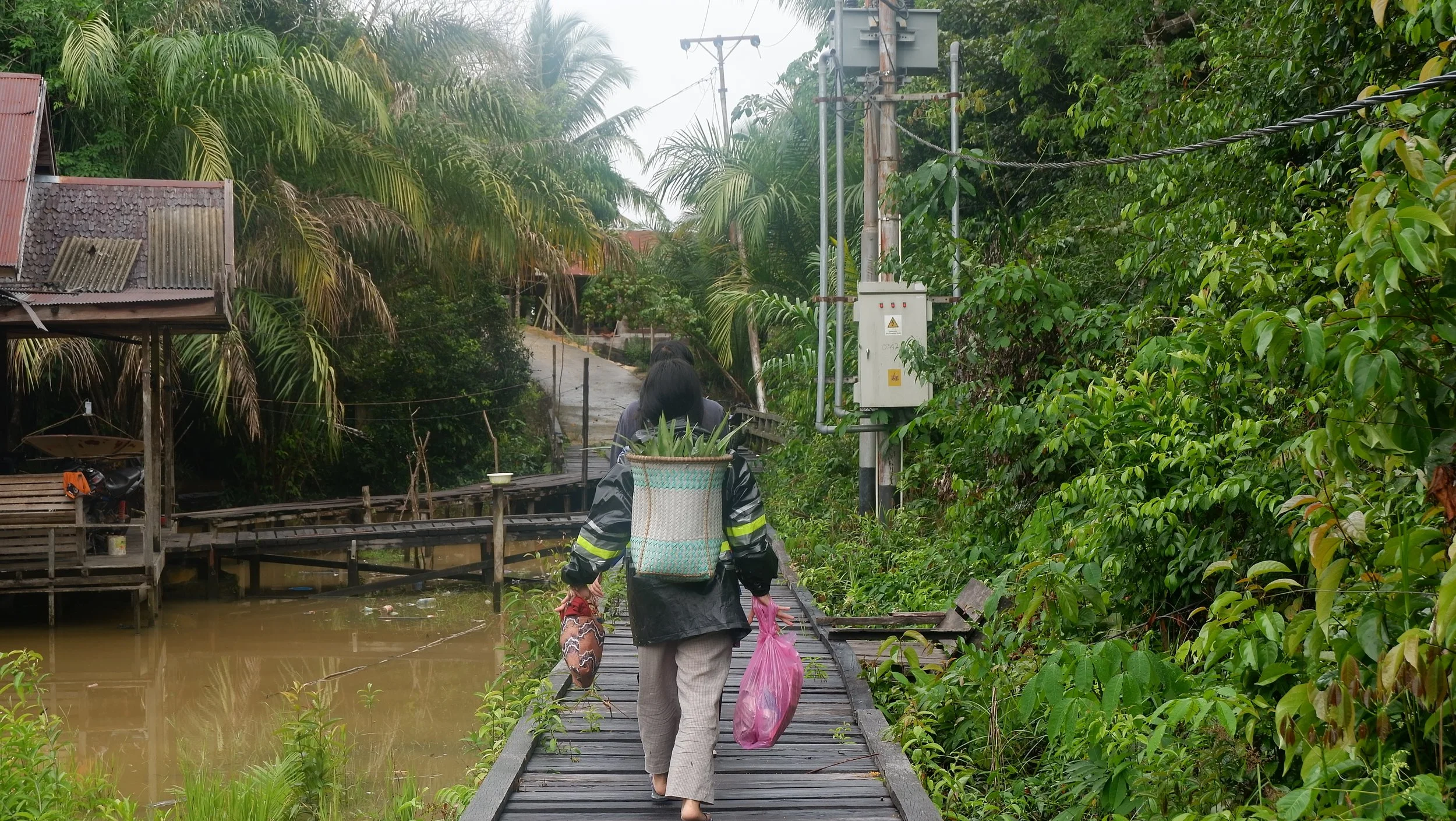One March afternoon, our team, together with two young people from Talekoi village, Ardi and Yoel, were struggling to ride our motorbikes on a muddy road with two large sacks of pineapple seedlings. Motorcycles full of mud, sweat-soaked clothing, and injured feet could not prevent us from transporting the pineapple seeds -- all so we could develop an agroforestry center in Talekoi village.
Muddy road that our team had to go through.
Talekoi village community in rural South Barito Regency is under pressure due to the expansion of logging and coal industries surrounding their territory. Although these companies have been working on their land for decades, the villagers still do not enjoy economic prosperity of any sort. The job opportunities in their area are also very limited. The villagers used to be farmers, but many had to stop working on their land because of the prior zero-burning policy issued by the government. Both economic development and forest protection are desperately needed in Talekoi village. That's why Ranu Welum, together with the community, initiated the agroforestry project.
Agroforestry practices have long been implemented in numerous Dayak communities with various types of crops and tree combinations such as cassava, rubber, and fruit trees. They also provide economic benefits to the community. In terms of conservation, agroforestry aids in the preservation of plant genetic resources, animal habitats, soil and water conservation, and biodiversity balance.
The selection of the right combination of plants, which are adapted to both the soil conditions and socio-economic conditions of the local community, is the most important factor in agroforestry's success. In this case, planting bananas, pineapples, cassava, rubber and fruit trees is recommended by the community.
Youth carrying pineapple’s seeds after 2,5 hours ride to get the seeds.
Oliv, local young girl was ready to plant pineapple
We engage both young people and mothers to be part of this agroforestry project. Together, we have planted hundreds of pineapple plants, cassava trees, and petai trees. We also donated hundreds of honey pineapple seeds, which have great economic value, to villagers to plant in their ladang (farms). We hope these seeds will multiply and make Talekoi the center of pineapple cultivation.
This is the first step for us to build agroforestry in Talekoi. There is still a lot to be done, and we believe with your help, we can protect the Talekoi area and revive the village economy. You can be part of the solution as well. Join our movement now and/or donate to support this initiative.
Petai tree grow well in the area of our project.




